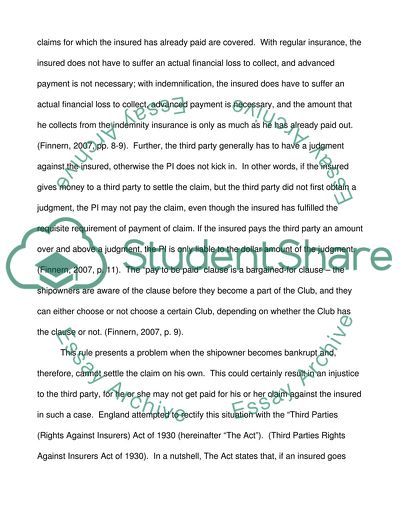Cite this document
(“Protection and Indemnity Clubs Article Example | Topics and Well Written Essays - 2500 words”, n.d.)
Protection and Indemnity Clubs Article Example | Topics and Well Written Essays - 2500 words. Retrieved from https://studentshare.org/law/1739702-insurance-law
Protection and Indemnity Clubs Article Example | Topics and Well Written Essays - 2500 words. Retrieved from https://studentshare.org/law/1739702-insurance-law
(Protection and Indemnity Clubs Article Example | Topics and Well Written Essays - 2500 Words)
Protection and Indemnity Clubs Article Example | Topics and Well Written Essays - 2500 Words. https://studentshare.org/law/1739702-insurance-law.
Protection and Indemnity Clubs Article Example | Topics and Well Written Essays - 2500 Words. https://studentshare.org/law/1739702-insurance-law.
“Protection and Indemnity Clubs Article Example | Topics and Well Written Essays - 2500 Words”, n.d. https://studentshare.org/law/1739702-insurance-law.


